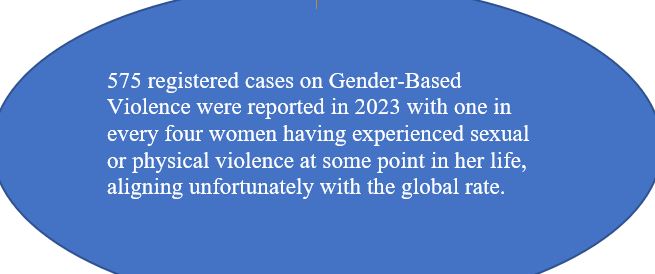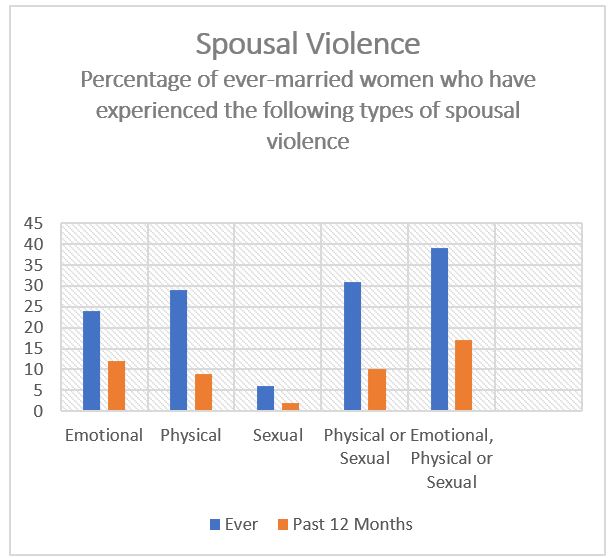By Malick Nyang
Sexual and Gender-Based Violence (SGBV) as defined by The UN Refugee Agency (UNHCR) refers to any act that is perpetrated against a person’s will and is based on gender norms and unequal power relationships. SGBV is mostly rooted in individual attitudes that allow violence in the family, work place, and community. Men may be victims of SGBV. However, the preponderance of evidence suggests that women are much more likely to be abused.
Although Rape, Child Marriage, Female Genital Mutilation (FGM) and other forms of SGBV are criminal offences in The Gambia, its occurrence is believed to be quite common.
According to The Gambia Multiple Indicator Cluster Survey (MICS) 2018, seventy-five (75) percent of girls between the ages of 15 to 19 have undergone FGM. Forty-four (44) percent of girls between the ages of 15-19 think the practice should continue, while 49 percent think it should stop. Sixty-seven (67) percent of girls at the age of 18-19 believe that a man should beat his wife.
KEY FACTS ABOUT GBV IN GAMBIA
In the 2019/20 Demographic and Health Survey:
- 9% of women between ages 15 to 49 have experienced sexual violence.
- 46% of women have ever experienced physical violence since age 15.
- The most common perpetrator of physical violence among ever-married women is the current husband or partner (53%).
- Among never-married women, the most common perpetrator of physical violence is the mother or step-mother (53%).
- 40% of ever-married women have been subjected to either physical, sexual, or emotional violence by their current or most recent partners.
- Divorced, separated, or widowed women are more likely to have ever experienced sexual violence (16%) than married (9%) and never married (8%) women.
- 51% of women and 35% of men in The Gambia agree that wife beating is acceptable.
- In The Gambia, Intimate Partner Violence (IPV) is still seen by many as a private matter between spouses and only a limited number of women seek legal recourse due to the patriarchal nature of the society.
- Reports of sexual violence are highest among women in Banjul (11%) and lowest in Kerewan and Mansakonko (7% each).
 In 2023, a study by Women in Liberation & Leadership (WILL) shows:
In 2023, a study by Women in Liberation & Leadership (WILL) shows:
- 85% of the respondents in LRR and 74% in NBR felt that women were at risk of experiencing IPV or GBV in their communities.
- Over 70% of the people engaged within the two regions agreed that child marriage is a violation and should be stopped.
- Child marriage and FGM practice was reported to have decreased drastically (LRR & NBR) since it was criminalized, because the population has been educated on their detrimental effects.
- 62% of the respondents in LRR and 80% in NBR responded that FGM was an act of violence and that it should be stopped. This indicated that there was a higher level of FGM support and practice in LRR than in NBR.
- According to The Gambia Multiple Indicator Cluster Survey (MICS) 2018, 67 percent of girls at the age of 18-19 believe that a man should beat his wife.

Help Seeking Behaviour
Twenty-six percent of women age 15-49 who have experienced physical or sexual violence sought help to stop the violence. Nearly two-thirds of women (65%) never sought help nor told anyone. The most common sources of help for women who have experienced physical or sexual violence are their own family (66%) or their husband or partner’s family.
Sources:
https://www.ihrda.org/wp-content/uploads/2020/07/Handbook-on-SGBV-in-The-Gambia-FINAL.pdf
https://dhsprogram.com/pubs/pdf/SR268/SR268.pdf
https://thepoint.gm/africa/gambia/headlines/unfpa-reports-575-cases-of-gender-based-violence-in-2023
https://gambia.unfpa.org/en/news/unfpa-funds-research-intimate-partner-violence-gambia


